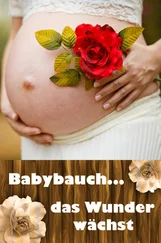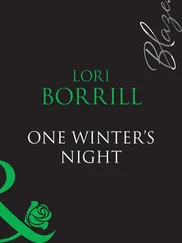It wouldn’t even be something a child that age would remember, would it? Think of Thuy, who’d fled Vietnam with her mother and grandmother on an open boat. Thuy had been four years old, and she’d spent three days tucked between her mother and the body of her grandmother, who’d died in the boat in the middle of the ocean—but Thuy’s earliest memory was of shaking the hand of Mickey Mouse at Disneyland.
After Eric and Holly returned to the States after that first trip for those three long months before they could go back for their daughter, Holly tried never to think about what could potentially harm her baby still in Siberia—accidents, negligence, abuse, disease, spoiled food—during the long winter they were separated.
They’d done all they could do, hadn’t they? They’d bribed the nurses to take care of the baby, and to call her Tatiana, not Sally. There’d been promises of more money to come if the baby was fine upon their return.
And she was fine!
Although she was larger (startlingly larger) and thinner and smaller at the same time, and although her eyes seemed to have shrunk and her hair had grown longer and shinier than it could possibly have grown in only those months, and although she was too pale (like all the children in the Pokrovka Orphanage #2!), she looked healthy. She had been potty-trained. Her cheeks were scarlet red, and although that flush had turned out to be rouge that had been applied by the nurses to the baby’s cheeks, Tatiana did not look unhealthy even after Holly discovered the makeup on a white paper towel after washing, gently, her daughter’s face for the first time in the airplane potty.
Of course, Tatiana did not look happy to see Eric and Holly when they arrived at the orphanage in the spring—but why would she? How could she possibly have remembered them from their visit at Christmas? A visit that was, anyway, so brief? She didn’t resist them when they wrapped her in the blanket they’d brought with them, or when they changed her clothes into the little white cotton dress Gin had sewn for the occasion. When they left the orphanage together forever, Tatiana did not look back at the nurses—not even Anya, who had been, back at Christmastime, her favorite. Yes, that was a little disconcerting, that the nurse who’d cared for her for nearly two years seemed like a stranger to her. But Tatiana seemed unharmed. She seemed to have been well taken care of, for which they’d bribed the orphanage staff, although it did bother Holly that Baby Tatty did not look up when she spoke her name.
“Tatiana?”
Baby Tatty seemed not to recognize that name at all. So the nurses hadn’t called her Tatiana, had they, as they’d been asked to do?
But of course that mattered so much less than everything else—that she hadn’t been starved, or beaten, or dropped to the floor, or left so long in her crib that she had, as the orphanage’s children famously had, a flattened skull, a bald spot.
And soon enough she began to answer to her name.
ONLY ONCE, WHEN they had been home in Michigan for two weeks, did Holly ever say the other name.
“Sally.”
Baby Tatty had been sitting on the living room floor, almost exactly in the place where Tatiana knelt now before the Christmas tree, and Holly, standing behind her, had said quietly, but loudly enough that she could have heard her, “Sally?”
Baby Tatty did not turn around.
“Sally?” A little louder this time, but still there had been no response.
Holly thought she should be grateful, that this child no longer answered to the name they must have called her in Siberia, that she had internalized her new name. But she didn’t. Instead, Holly had felt a coldness spread across her chest.
It started behind her ribs—but the coldness also encompassed the area of her reconstructed breasts. She thought of the younger Tatiana, the one the nurses had called Sally, at Christmas, on that first Christmas Day, and how she’d looked into Holly’s eyes as she cradled her, how she’d reached one small pink hand, with its perfect tiny fingernails out, and slipped it into Holly’s reconstructed cleavage, into a gap between two buttons of her white blouse:
Her eyes.
Holly had never before and had never since seen such eyes.
Those had been Sally’s eyes.
This child, who’d been brought home with them only weeks before, was not Sally.
HOLLY TRIED TO straighten up. She pushed the white boots out of the way. They were splattered with blood from the roast, and there was a slick puddle of blood near the front door. She reached overhead, using the doorknob of the coat closet to pull herself up until she was standing. There was a shooting pain in her back, but Holly felt sure the pain would go away after a while. There could be nothing wrong with her spine, after all, if she was standing. She inhaled, gazing at her daughter’s back:
All that dark, shining hair.
EVENTUALLY, HOLLY HAD forgotten the coldness she’d felt that day when the child, who had not been called Tatiana—and who, then, surely had been called Sally—did not answer to her name.
No! Why would she? She answered to Tatiana now! How quickly a name, replaced by another, would be forgotten. No matter how long they’d called her Sally, now she knew herself to be Tatiana.
Forget Sally , Holly had thought, and she had gone so far as to name one of the hens Sally. It had seemed so innocuous, even charming. It was the name they might have given their daughter, but they hadn’t. Now Holly gave it to her hen, and it secretly pleased her to hear that name on her daughter’s lips. (“Sally laid an egg under the bushes!”) Holly had never told Tatiana that Sally had once been her own name. Why would she?
She had never been Sally.
Holly shook her head, trying to shake that thought out of her mind:
Yes, she had looked like a different child, perhaps, when they went back.
Longer. Thinner, but larger. Older than they’d expected her to look, having grown and changed more over the course of those months than they’d known was possible. But there were familiar features! The eyes were smaller, yes, and the hair was longer, but they were essentially the same features. It was natural, surely, to come upon a child you hadn’t seen for many weeks and to find her changed. To see her almost as an older sister to the child you’d left behind. Children changed so quickly, and in ways you could not anticipate. That Baby Tatty had changed so much, that she answered to no name that Eric or Holly or the nurses called her, that her hair—
Well, Tatiana hadn’t been the only child with that kind of hair in the orphanage! It was surprising how luxurious a small child’s hair could be! Behind that forbidden door, Holly had seen a girl with nearly such shining black hair. That girl, who seemed little more than an infant (although it was impossible to tell, as she was so malnourished), was sitting bare-bottomed, strapped to a plastic bedpan. Her face was pale and smooth as stone, and she stared up at Holly, and then—horribly!—she seemed to recognize Holly. That little girl had smiled at Holly with such a beatific expression it was as if she were trying to distract this onlooker from the horror of her situation—her broken and imperfectly healed limbs, her crooked spine.
Yes, Holly remembered now! That had not been their first visit when Holly had snuck into that room. It had been their second , when they’d come back for their baby!
And it had not been the boy with the hydrocephalic head that had sent her hurrying out of the room! It had been the smile of that familiar little girl with her enormous dark eyes, to whom something horrible had happened:
She’d been beaten. Or dropped. She would never walk. She was completely broken.
Читать дальше
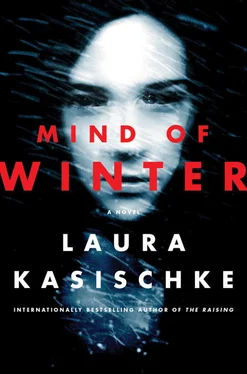

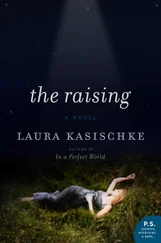
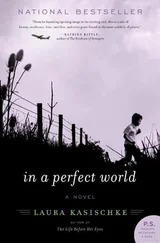

![Джон Харгрейв - Mind Hacking [How to Change Your Mind for Good in 21 Days]](/books/404192/dzhon-hargrejv-mind-hacking-how-to-change-your-min-thumb.webp)
